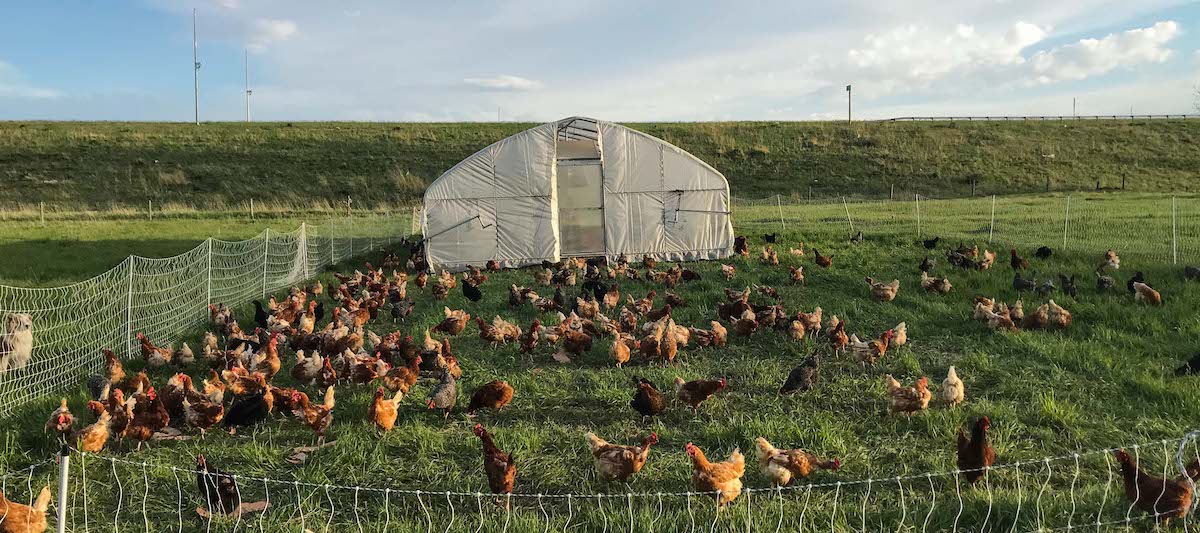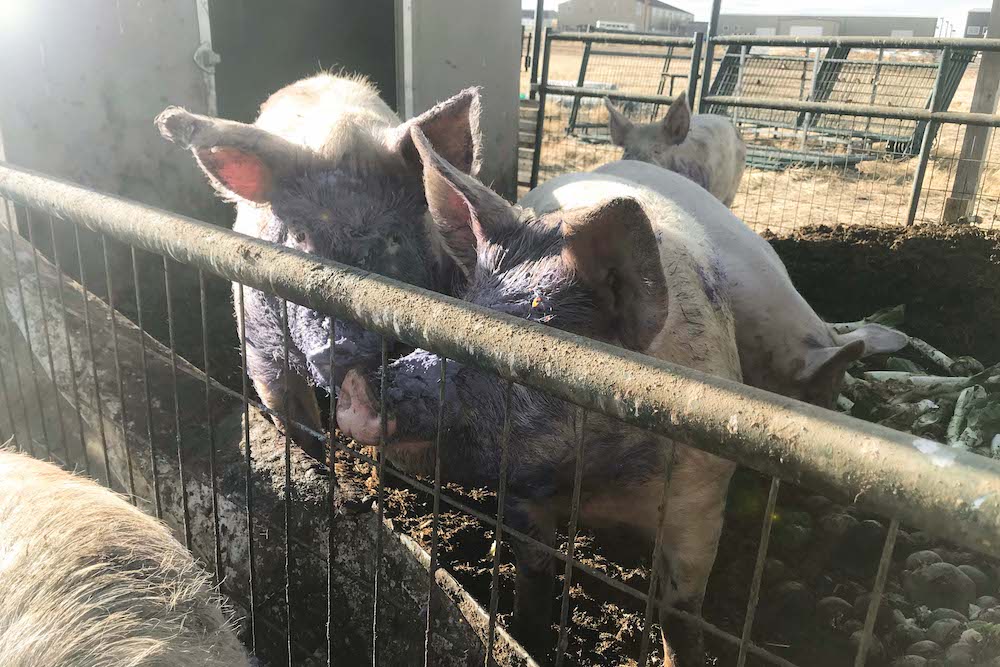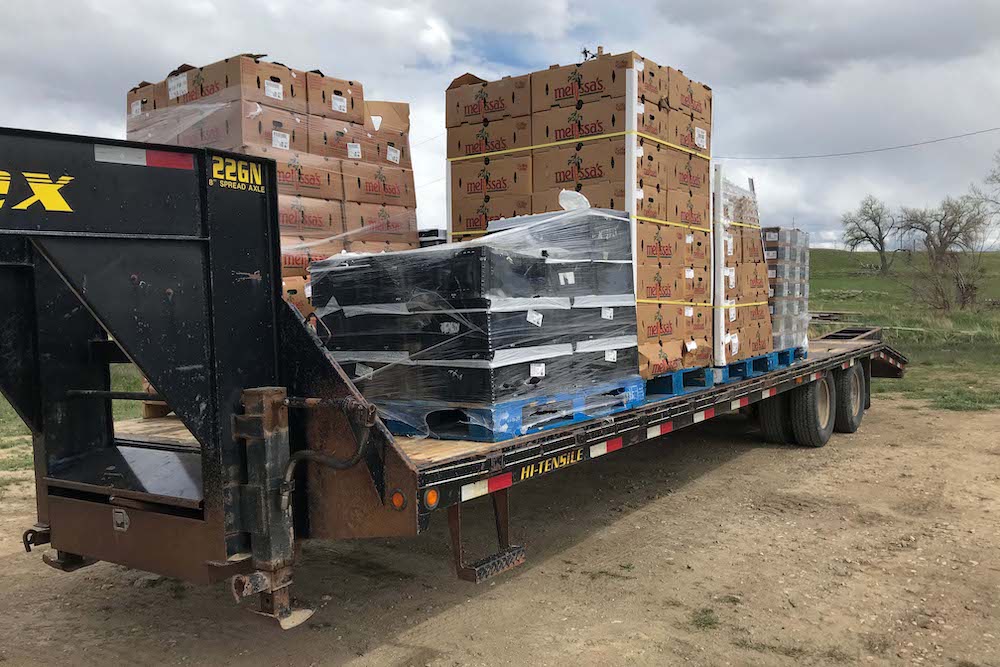
Neal Neumiller’s chickens aren’t picky about sell-by dates, but they draw the line at celery of any age. Strawberries that are past their prime or brown bananas? Those are just fine. But celery is a different story.
Neumiller lives in Casper and had plenty of opportunities to learn about the kinds of fruits and vegetables his chickens would eat before he agreed to take expired produce from Food Bank of Wyoming’s distribution center and use it as feed.
It’s a win-win partnership, said Richard Plumlee, director of operations at Food Bank of Wyoming: The old produce stays out of the landfill and helps the Food Bank operate more sustainably, and Neumiller’s chickens happily fill up on their own private salad bar.
“Our partnership with Neal and his farm is vital to our ongoing sustainability efforts and achieving our goals of reducing waste as an organization,” Plumlee said. “From July 2020 to the end of June 2022, Neal has prevented nearly 37,000 pounds of expired produce from going to the landfill.”
Plumlee explained that some of the produce Food Bank of Wyoming receives is very near to the end of its shelf life or consume-by dates. When it becomes unusable, he calls Neumiller, whose farm is just across the road from the Food Bank’s distribution center.
Neumiller’s parents purchased the farm — which is the historic Lathrop Homestead — in 2018 as an addition to their family ranch north of Douglas, Sunshine Valley Ranch. Neumiller was curious to see how much of his own food he could grow, so he decided to plant a large garden. In 2020, a Food Bank of Wyoming employee noticed him working in his garden and asked if he would be interested in utilizing their food waste. He agreed and used it to feed both the chickens he still raises now as well as a herd of pigs he had at the time.

While the pigs were happy to eat nearly everything, Neumiller has learned his chickens don’t always dive into everything they’re offered. However, even the food they don’t eat is beneficial, as it breaks down and feeds the microorganisms in the soil. Comparing the pasture where his chickens eat to a second pasture on the homestead, Neumiller noted that the pasture with the chickens is significantly more lush and green.
Together with his dad, Neumiller collects the expired food from the distribution center with a trailer. Back at the farm, the two separate the food from its packaging, remove stickers from items without packaging, such as watermelon and bananas, then return any non-food items back to the distribution center to be recycled.
“It takes labor to separate produce out of the garbage,” said Neumiller. “I am helping recycle that and put it out into the pasture. Food Bank of Wyoming is supporting the Casper community with food distribution, and I am supporting the Food Bank by keeping excess food out of the dumpster.”
Even though Neumiller devotes a significant amount of his time gathering and preparing the expired produce for his chickens, he says the farm is more of a hobby. He works full-time as a petroleum engineer, and he also sells the pasture-raised eggs his chickens produce. In addition, he has a food truck called FTP (Farm to Plate) that features entrees showcasing the grass-fed beef his family raises on Sunshine Valley Ranch. He uses the food truck to get the word out about the beef they sell.

Food security is important to Neumiller, and going forward he would like to see more people learn how to grow enough food for themselves and maybe some of their neighbors.
“I want to see the community that says, instead of having a manicured lawn inside our city, you need to provide for food security: like a victory garden,” he said. “We need to start helping produce for our community.”







